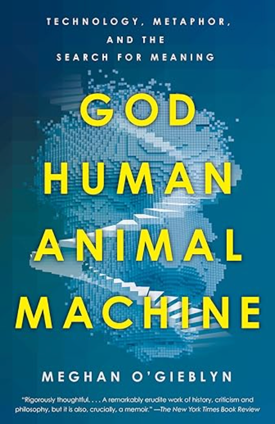On Linkedin, I've been reading an excellent thread of answers to the question, "Do you read user manuals?" Of the 50 people who answered, the resounding response is No, I don't read the manual. I try to figure out the application on my own. I only turn to the manual when I get stuck and can't figure out a feature. Or I turn to the manual when I want to learn more advanced functions. One of the responders, Robert Poulk, put it best when he...
When you search-engine-optimize your blog posts, you can increase your blog's subscribers in a long-term way. You don't have to stiffen your prose to apply search engine optimization -- you just have to apply keywords in the right places. For example, my post on "Technical Writing Careers -- Answering 13 Questions About Technical Writing Jobs" targeted searches for "technical writing careers." My post on "How I Create Video Tutorials" ta...
Sapphire writes, I had a small question about your blog's template. I really liked the template as soon as I saw it and went ahead and downloaded it. Could you let me know how you added the navigation tabs on the top? I am not much of a programmer but I can work with php and css to an extent. I'd be highly obliged if you could help me set up the same :) And I hope you that you keep posting GREAT content - I love it! All the best, Sapphire...
After a summer hiatus, the Intermountain STC is gathering tonight (Thursday, Sept 18) for another meeting. The topic is on repurposing content for multi-channel publishing. See more details.
Watch what happens when you copy and paste two sentences from Word into a new blog post. [kml_flashembed movie="https://idratherbewriting.com/jing/wordcodebloat.swf" height="600" width="500" /]
Did you see the STC's call for proposals for the next annual conference in Atlanta? Last year I presented on podcasting. The 55 people who commented on my session rated it higher than average (the rating was around 4.6 as opposed to the 4.3 average). I think my presentation was good, but most people wanted me to connect it more to technical communication. They wanted to see how technical material could be presented as a podcast, I believ...
Recently I switched from using the iRiver I bought two years ago to my wife's iPod Nano, which she only uses intermittently. I don't know why I used my iRiver for so long. The iPod is superior in every way, but mostly because it offers convenience. For example, New podcasts download automatically when I merely plug it in to my computer and click Sync. Its small size allows me to clip it onto my belt and easily hide the headphones in my p...
Wordcamp Utah, Sept 27 Wordcamp Utah will be held Sept 27, 2008 in Provo (at Novell). If you're a blogger living in Utah and you're interested in immersing yourself in a full day of WordPress presentations, conversations, and other exchanges, be sure to attend. See the Wordcamp Utah site for more details. Cost is $20 per person and you need to register. A looooong time ago I attended a planning meeting for this Wordcamp. Joseph Scott is t...
September 2012 update: I wrote a new post detailing my process for creating video tutorials here: How to Create Video Tutorials -- A Five Step Process. Creating video tutorials is no trivial task. When you sit down to create 20+ video tutorials for a project, you're faced with dozens of questions. What screen size should the videos be, what recording tool should you use, what microphone is best, how long should the videos be, what file si...
The Help Authoring Tools survey in my blog's sidebar has been the source of no little controversy, and I've left it up there for a reason. I've been telling myself that when 1,000 people participate, I'll officially analyze the results. (So far 784 have voted.) However, Char James-Tanny announced a new help authoring tools survey, this one sponsored by the HAT-Matrix (not to be confused with the Matrix movie). The new HAT-Matrix's survey ...
Help Authoring Tool Survey: Who, What, and How
In a recent IT Author podcast ("Documentation and Agile Development"), Alistair Christie and Graham Campbell talk about agile development and its impact on documentation. One consequence of working in an agile environment, they say, is the need to prioritize your documentation, to deliver instructions for only the most important or confusing features. Presumably, some agile environments move so fast, you have to triage what you document b...
Listen here: Flare 4 was just released today by Madcap Software. In this podcast, I talk with Sharon Burton -- product manager at Madcap Software -- about all the main features of the Flare 4 release. Flare 4 topics we discuss include the following: Page layouts New outputs (PDF, XPS, XHTML, and Adobe Air) Enhanced reporting capability Built-in topic reviews Additional help guides Global project linking Image resizing ...
Flossmanuals.net is a new wiki help authoring/publishing tool hybrid that, as far as I know, is completely unique. The site is more than a wiki. It allows groups of authors to create specific chapters independently. You can then remix the chapters into any arrangement and selection you want through a drag-and-drop interface. Finally, you can export the selection as a PDF file. Alternatively, you can embed the manual on a separate site usi...
Listen here: Having taken a three-month podcasting break, it feels good to be back. In this podcast, I talk with Charles Jeter and Heidi Hansen about what's new in the field of technical communication. See the sections below for the four main topics we discuss. Note: If you've never listened to a podcast before, see my brief page on How to Listen to Podcasts. Hosts Heidi Hansen (see Heidi's blog) Charles Jeteter (see ...


